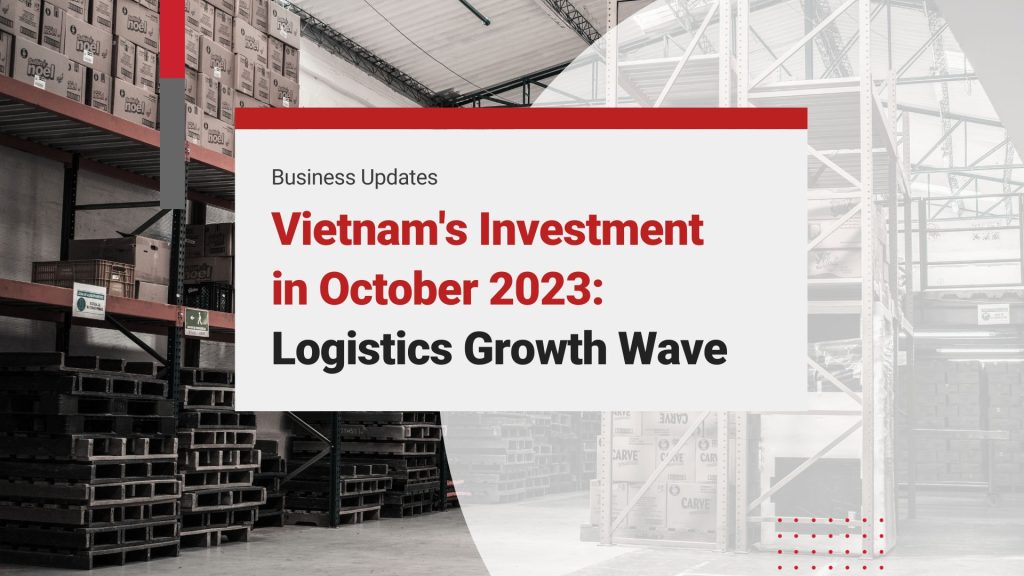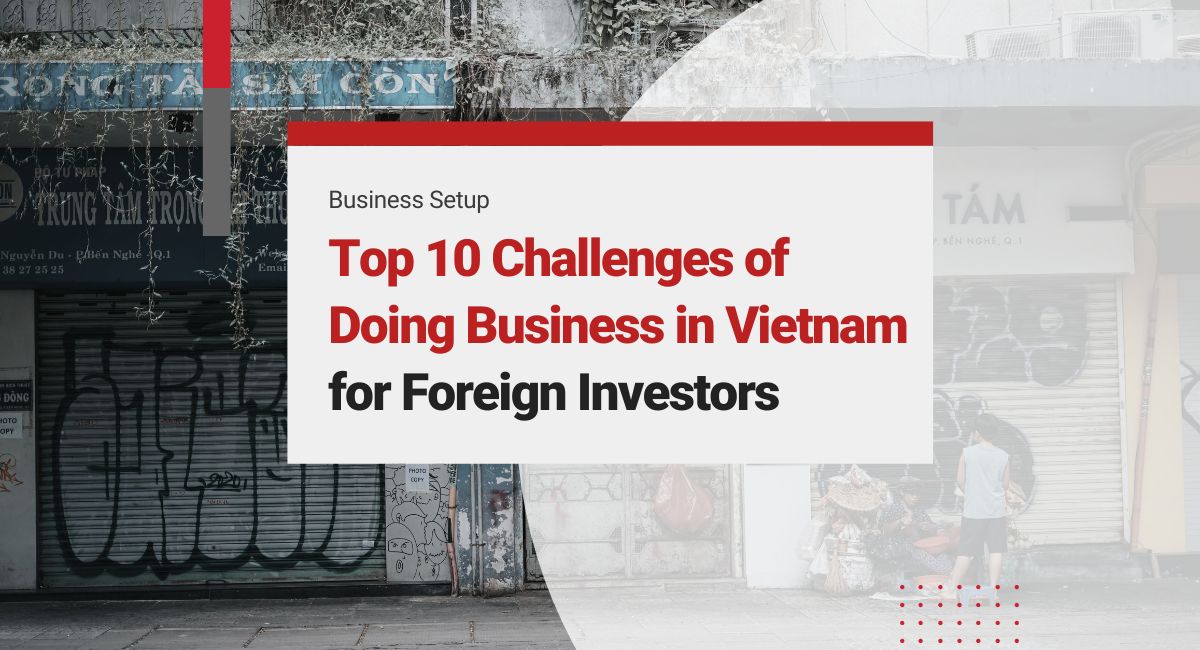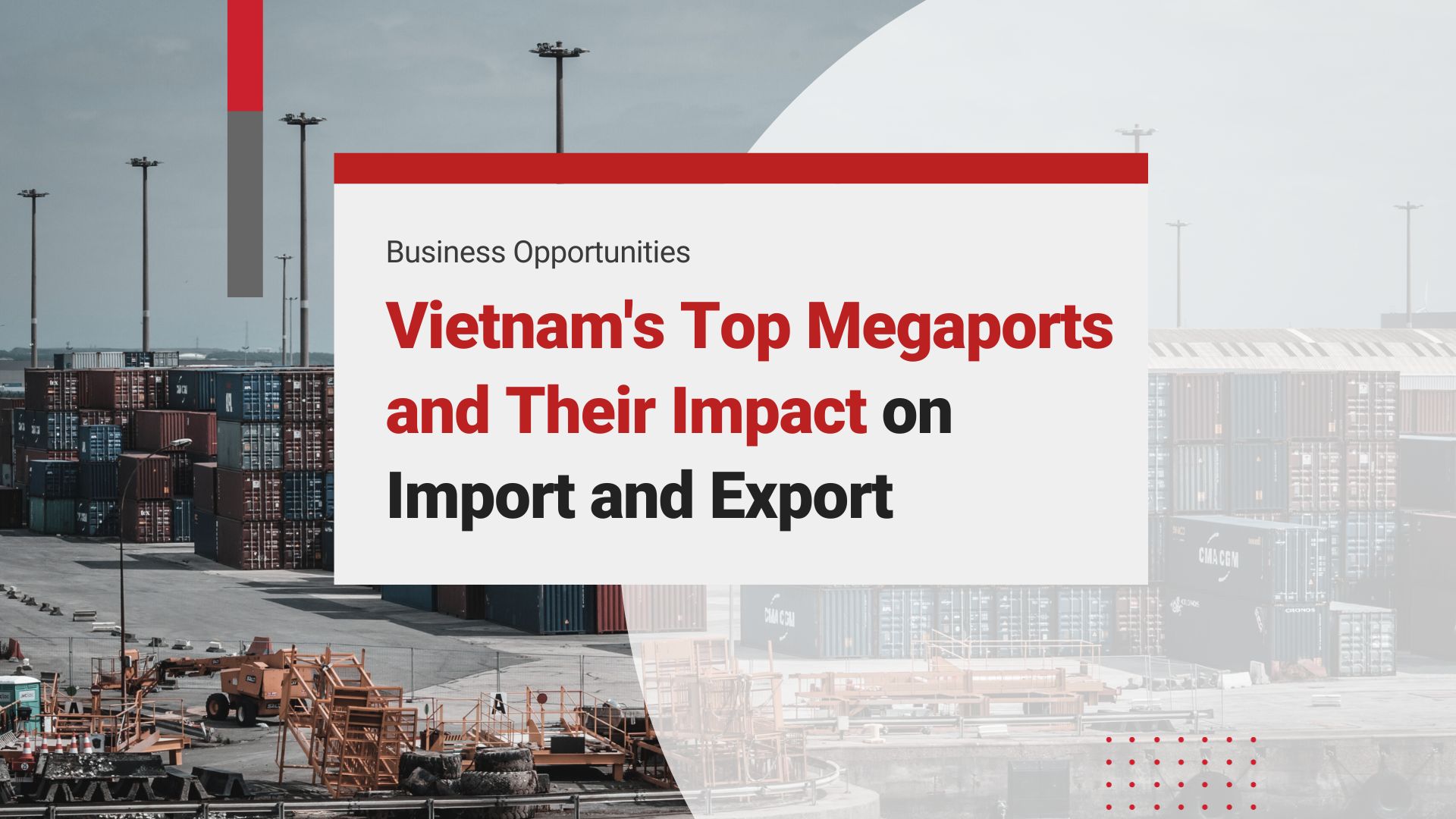In October 2023, Vietnam’s economy experienced a positive transformation, especially in major financial investment hubs like Ho Chi Minh City. The expectations for progress in foreign direct investment (FDI) inflow were somewhat met. Simultaneously, with the potential and a concerted effort to strengthen transportation, warehouses, ports, and the logistics growth wave, new heights were achieved, leading to a significant increase in FDI in industrial zones.
It’s not surprising that investors from Germany are allocating more resources for their investment plans, and Brazil is seeking expansion to become Vietnam’s 17th Free Trade Agreement partner. Provinces and cities with developed industries like Dong Nai, Tra Vinh, and Hanoi also witness an influx of foreign investment in various multi-sector projects.
Read More: Doing Business in Vietnam as a Foreigner: What, Where, Why, How?
Ho Chi Minh City – A Global Financial Hub in 2030
Vietnam strategically positions Ho Chi Minh City to become a global financial hub by 2030. This committee, formed under the decision of Prime Minister Pham Minh Chinh, will play a pivotal role in advising the government, conducting research, and coordinating tasks associated with creating the envisioned financial center.
The project brings together top executives from various ministries, including Finance, Trade and Industry, Defence, etc. Ho Chi Minh City and Danang have been involved in preliminary research, emphasizing the city’s significance in this endeavor.
The financial hub’s blueprint outlines a three-pronged structure that includes a monetary market, banking system, capital market, and derivatives market. Key action programs include expanding Fintech and digital financial transactions, promoting the Thu Thiem Financial and Trade Zone, and growing the commodities market. Additionally, the plan envisions entertainment districts and casinos as strategic elements to enhance the financial center’s appeal to global investors.
Read More: Choosing the Ideal Business Location in Vietnam: The First Step of Success
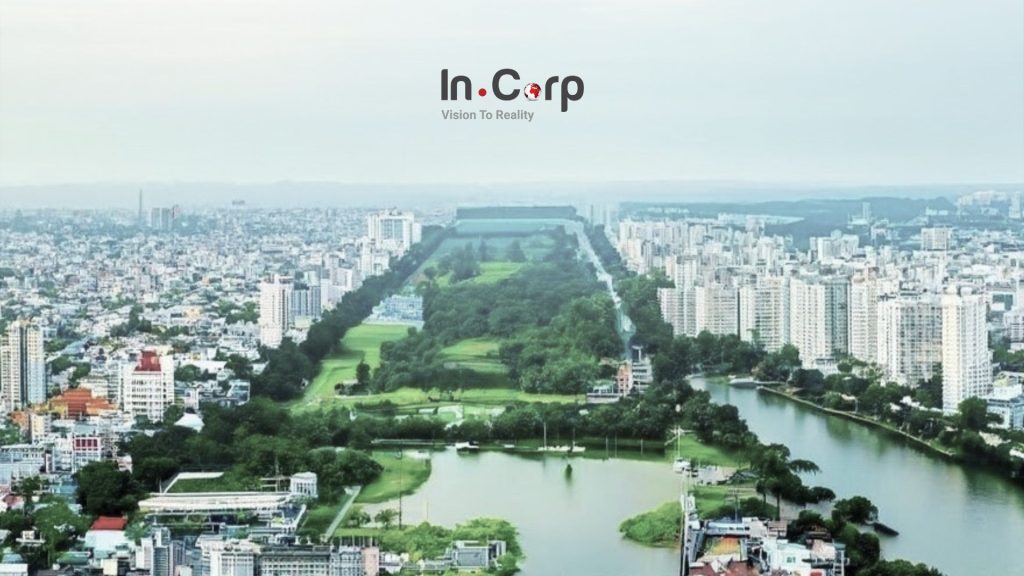
2023 FDI Inflows in Vietnam Forecast to Surpass 2022
In the first nine months of 2023, Vietnam has seen a significant rise in foreign direct investment (FDI) inflows, with a total registered capital of US$20.21 billion, marking a 7.7% YoY increase. FDI disbursements have also surged to US$15.91 billion, a 2.2% YoY increase and the highest from 2017 to 2023. The growing number of projects reflects the recovery and expansion of foreign-invested enterprises in Vietnam.
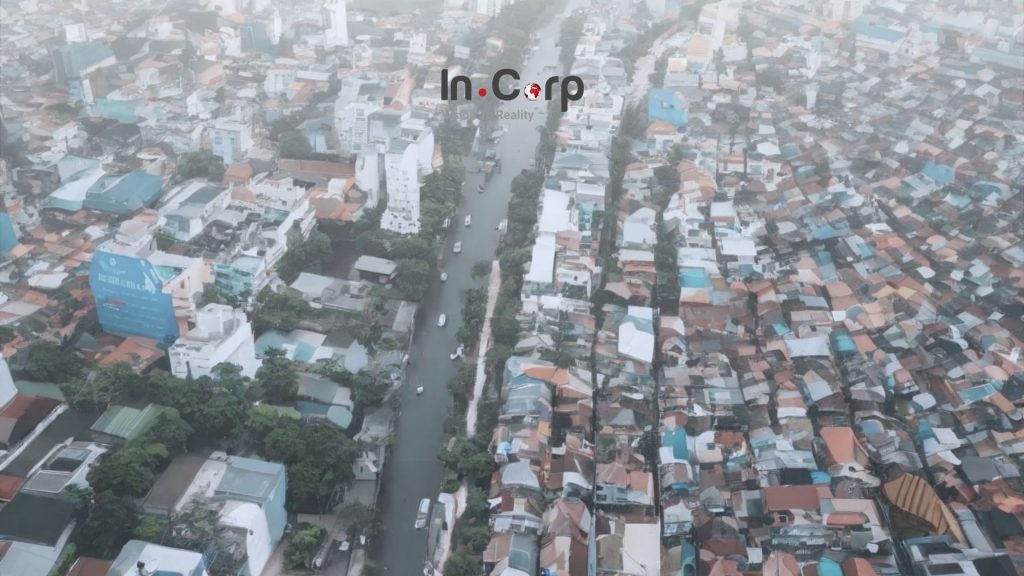
Various factors contribute to this trend, including Vietnam’s attractive support packages, favorable business environment, macroeconomic stability, strategic location for investment, extensive free trade agreements, and a skilled workforce. Furthermore, the relocation of businesses from China, the stability of the Vietnamese dong, and the strengthened US-Vietnam relationship have bolstered investor confidence. The manufacturing sector, which dominates FDI, is poised for a robust rebound, with new investments surpassing the total of the past three years. This influx of FDI is helping Vietnam reach its annual foreign investment capital target.
Strong Foreign Long-term Commitment to DEEP C
DEEP C Quang Ninh, in Quang Ninh province, is swiftly becoming a major industrial and logistics hub with a strong focus on sustainable development, highlighted by the construction of a LEED-certified service complex, aligning with global eco-friendly goals.
The province has set a target to attract US$1.5 billion in capital investment to the region in 2023, and DEEP C plays a pivotal role in achieving this goal. Their involvement underscores their dedication to promoting economic growth while adhering to sustainable principles, making Quang Ninh a potential beacon for green investments in the region.
DEEP C Industrial Zones values government support in its mission for a sustainable Vietnam, aligning with global environmental goals, including Vietnam’s carbon neutrality pledge under COP26. They aspire to make Vietnam a prime destination for eco-friendly investments, promoting both the economy and a greener world.
Read More: Vietnam’s Industrial Zones: A Key Player in Global Manufacturing
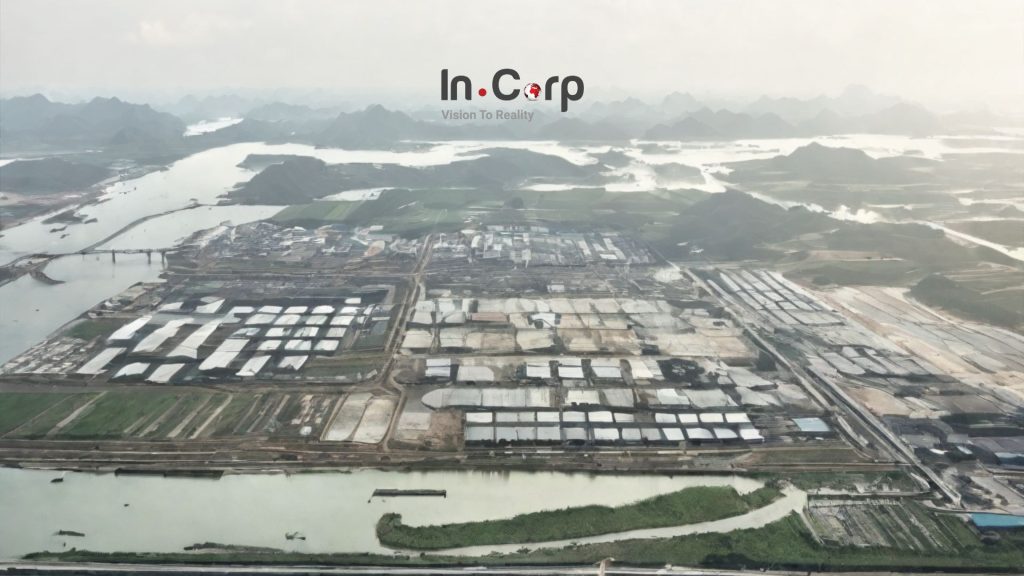
Amkor Opens Mega Semiconductor Factory in Vietnam
South Korean firm Amkor opens a major semiconductor facility in Vietnam with a US$530 million investment on a 23-hectare site. Plans to boost investment to US$1.6 billion by 2035. Reflects the broader trend of semiconductor companies, including Hana Micron and Essentra Components, expanding in Vietnam.
The country’s rapid growth in the semiconductor industry is significant, though it faces challenges in meeting the demand for skilled labor. To address this, various Vietnamese entities, including FPT, are entering the semiconductor sector and are making plans to boost their workforce. Research firm Technavio predicts Vietnam’s semiconductor market will grow by US$1.65 billion between 2021 and 2025, at an annual rate of about 6.5%.
Vietnam Logistics: Booming Market and Shifting Landscape
Vietnam’s logistics sector is booming, with major players like Sembcorp, Alibaba, and Frasers Property investing in green logistics centers. The industry is worth US$40-42 billion, ranking 43rd globally for efficiency. Investment strategies include integrated platforms, asset upgrades, and mergers. Customs clearance services are promising, and shipping prices are rebounding.
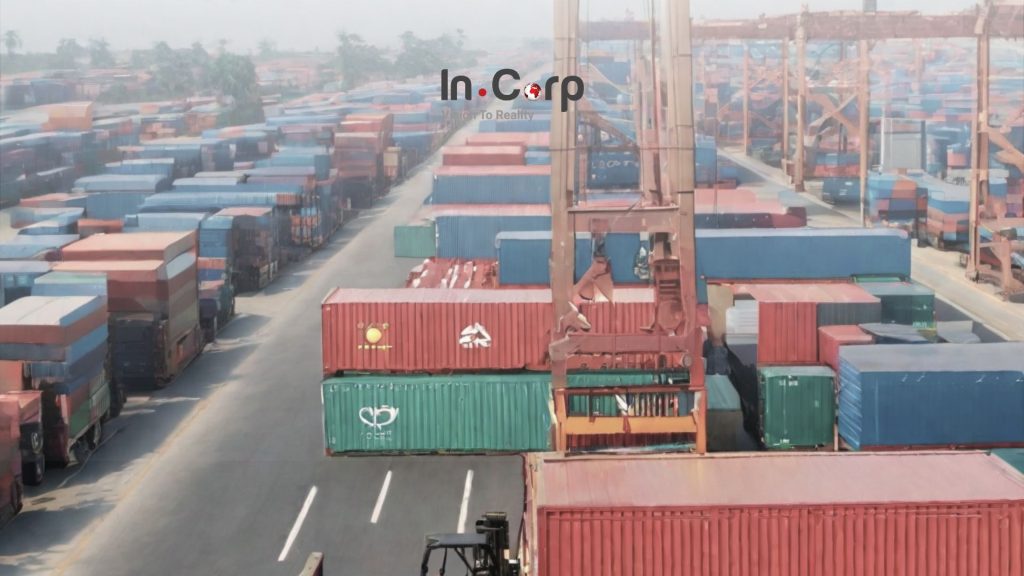
Vietnam’s logistics industry thrives on GDP growth, manufacturing, e-commerce, and export focus. Aviation, maritime, and road networks support freight. Challenges include infrastructure gaps, high transport costs, and complex administration. The sector’s potential lies in warehousing, cold storage logistics, e-commerce, and last-mile delivery. Government investment and regulatory streamlining enhance the sector’s appeal to trade and investment.
Vietnam’s US$14 billion e-commerce market in 2022, driven by a growing middle class and increased internet access, spurs growth in logistics. Key areas include last-mile delivery and warehousing, with e-commerce platforms adopting in-house logistics and tech solutions to improve delivery efficiency. This prompts investments in infrastructure and sustainability, like electric motorbikes for deliveries.
Read Related: Business Opportunities in E-commerce Logistics in Vietnam
Streamlined Routes for Effective Freight Transport
Vietnam is focusing on improving its transportation infrastructure to boost logistics efficiency and reduce costs. New high-speed routes and expressways have significantly cut transportation times. The Ministry of Transport reported that expressways and road improvements have contributed to a notable decrease in logistics costs, down to 16.8% of GDP from around 21% in 2018.
Investment is also directed toward enhancing rail transport, with a focus on key stations to facilitate direct rail exports to China. The government aims to increase the logistics sector’s contribution to GDP to 5-6% and lower logistics costs to 16-20% of GDP. Their goal is to improve Vietnam’s ranking in the Logistic Performance Index to at least 50th globally.
A Promising Decade Ahead for Metro Star
Metro Star Investment Co., Ltd. celebrated its 18th anniversary by announcing a 10-year plan for continuous capital funding and kick-starting a sales program for the Metro Star project in Ho Chi Minh City’s Thu Duc. This real estate company, recognized for its green and sustainable developments, is renowned for its projects along the city’s metro lines.
Over the years, the scale of these projects has grown significantly, reflecting its commitment to the transit-oriented development model. Metro Star’s innovative approach has earned it international recognition, and it’s preparing for an international initial public offering in 2024. Its sustainable vision aligns with ESG standards, emphasizing green architecture and clean energy. In the next decade, the company aims to develop over 50 projects along the metro lines, offering a modern, green lifestyle for investors.
ITL invests US$200M in Vietnam’s Warehousing
ITL Corporation plans to invest approximately US$200 million in Vietnam’s warehousing infrastructure over the next five years, underscoring the country’s role in its expansion strategy. The company sees Vietnam’s logistics sector as highly promising, partly due to the “China + 1” strategy adopted by companies diversifying their supply chains.
This shift, coupled with ongoing trade tensions between the US and China, has attracted significant investments to Vietnam. While infrastructure challenges persist in Vietnam, private companies like ITL Corporation are addressing them through substantial investments in areas like warehouses. The focus is also on energy conservation and utilizing electric vehicles to promote sustainable development.
Read More: China +1 Strategy in Vietnam: An Overview for Chinese Investors

Tran De Seaport: Vietnam’s Newest Goods Gateway
The Mekong Delta region, a key agricultural area in Vietnam, faces logistical challenges due to limited and inefficient transportation infrastructure. Over 70% of the region’s import and export goods are transported by road to Ho Chi Minh City ports, increasing costs and traffic congestion. Investing in Tran De Seaport is essential to alleviate these issues.
The project is planned to have an investment of more than US$6 billion by 2050, improving infrastructure and capacity for container and bulk cargo ships. Tran De Seaport is expected to handle up to 41 million tonnes of goods annually, reducing transport costs for the Mekong Delta’s agricultural products by 50%. This development will support the region’s economic growth, and special investment mechanisms are being considered to facilitate the project’s funding.
Economic Cooperation with Germany and Brazil
A German company will invest US$1.6 billion in an eco-friendly stainless steel plant with a capacity of 1.1 million tonnes in Ha Tinh, Vietnam. The project aligns with Ha Tinh’s sustainable development objectives and leverages the strengths of the region, including the Vung Ang-Son Duong Port. Ha Tinh’s industrial production index increased by 4.37% in the first eight months of 2023, and stainless steel production rose to over 3.31 million tonnes, a 6.25% increase.
During a recent visit to Brazil, PM Pham Minh Chinh highlighted the potential advantages of a free trade agreement (FTA) between Vietnam and the Mercosur group (including Brazil, Argentina, Uruguay, and Paraguay). Bilateral trade is increasing, with a target of US$10 billion in 2025 and US$15 billion in 2030. The FTA will grant Vietnamese businesses access to the promising Mercosur market, fostering economic cooperation and boosting Vietnam’s exports.
Read Related: Guide to Vietnam’s 16 Active Free Trade Agreements (Updated August 2023)
Local Regions Ready for Investment Growth
Dong Nai recently granted investment registration certificates for three projects worth a total of US$210 million. These projects, situated in Long Thanh High-Tech and Long Duc industrial parks, are aligned with the province’s investment attraction strategy, focusing on advanced manufacturing and supporting industries.
Meanwhile, Tra Vinh envisions thriving through the development of its marine economy. By harnessing its abundant marine resources and energy industry potential, the province aims to become a hub for clean energy and sustainable tourism, investing in various sectors like transport infrastructure, agro-forestry fisheries, and more.
On the other hand, Hanoi continues to shine as a top destination for foreign direct investment (FDI). In the first nine months of this year, the city secured US$2.53 billion in FDI, driven by thriving tourism, robust external relations, and its strategic location. Hanoi has ambitious plans, with a focus on technology-related investments, aiming to attract US$30-40 billion in FDI by 2025, particularly in real estate, high-tech sectors, and smart city initiatives. These regions offer diverse opportunities for investment and development.
Read More: Choosing the Ideal Business Location in Vietnam: The First Step of Success
About Us
InCorp Vietnam is a leading provider of global market entry services. We are part of InCorp group, a regional leader in corporate solutions, that encompasses 8 countries in Asia-Pacific, headquartered in Singapore. With over 1,100 legal experts serving over 15,000 Corporate Clients across the region, our expertise speaks for itself. We provide transparent legal consulting, setup, and advice based on local requirements to make your business perfectly fit into the market with healthy growth.
Don’t take our word for it. Read some .
Verified by
Ian Comandao
Business Consulting Manager at InCorp Vietnam
Ian is a sales and marketing professional who has worked over 15 years in key accounts management.
